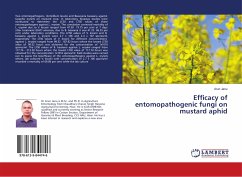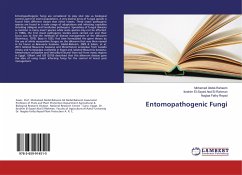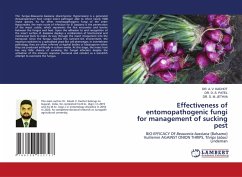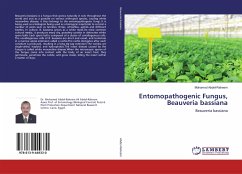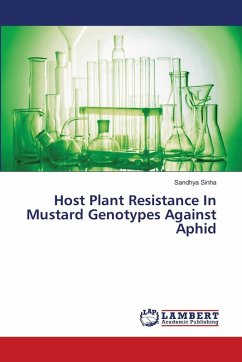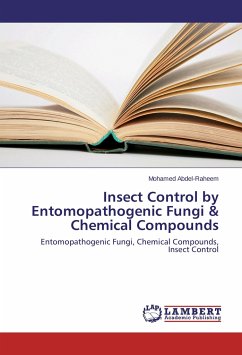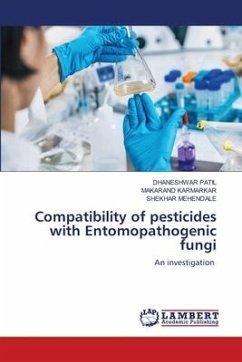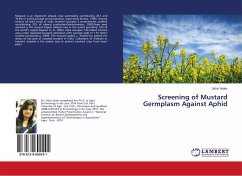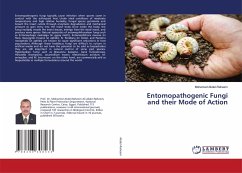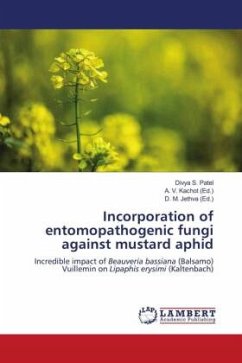
Incorporation of entomopathogenic fungi against mustard aphid
Incredible impact of Beauveria bassiana (Balsamo) Vuillemin on Lipaphis erysimi (Kaltenbach)
Herausgegeben: Kachot, A. V.; Jethva, D. M.
Versandkostenfrei!
Versandfertig in 6-10 Tagen
29,99 €
inkl. MwSt.

PAYBACK Punkte
15 °P sammeln!
Beauveria bassiana is an entomopathogenic fungus that causes white muscardine disease in a range of insects including whiteflies, aphids, thrips, grasshoppers and certain types of beetles. B. bassiana spores simply need to come in contact with a host. Once the host insect is infected, the fungus rapidly grows inside of the insect, feeding on the nutrients present in the host's body and producing toxins in the process. When the host dies, the B. bassiana covers the carcass in a layer of white mold that produces more infective spores. Naturally occurring in the soils of numerous regions globally...
Beauveria bassiana is an entomopathogenic fungus that causes white muscardine disease in a range of insects including whiteflies, aphids, thrips, grasshoppers and certain types of beetles. B. bassiana spores simply need to come in contact with a host. Once the host insect is infected, the fungus rapidly grows inside of the insect, feeding on the nutrients present in the host's body and producing toxins in the process. When the host dies, the B. bassiana covers the carcass in a layer of white mold that produces more infective spores. Naturally occurring in the soils of numerous regions globally. A major advantage to using Beauveria bassiana is the fact it can be used up until the day of harvest as the residue is not harmful to consumers.



